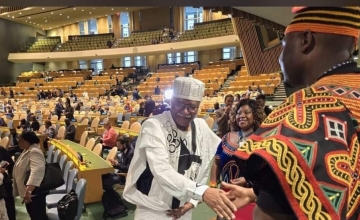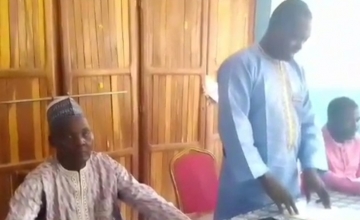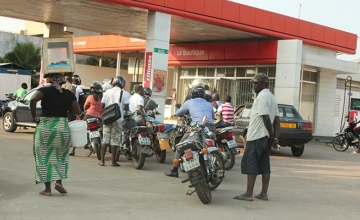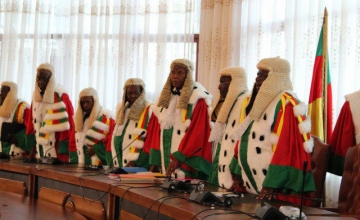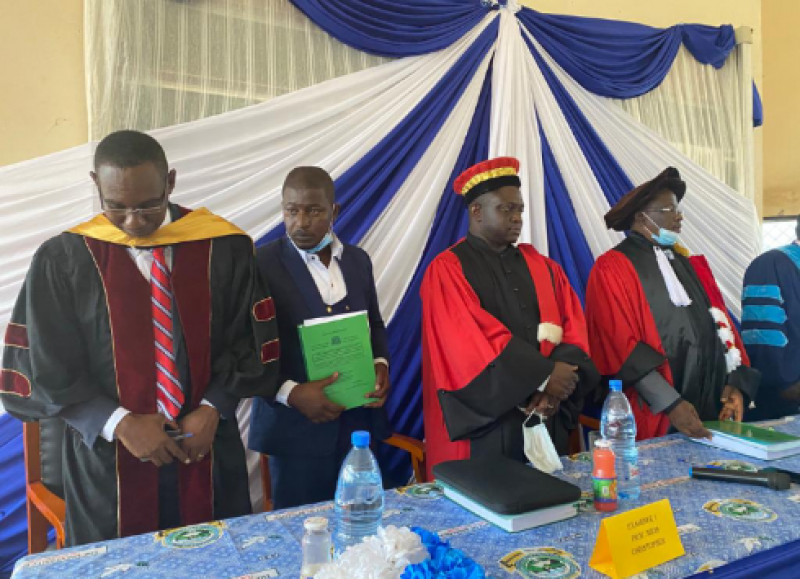
The Ph.D. thesis on the topic: "Regional Integration Peacekeeping and Conflict Resolution: A Comparative Study of Economic Community of West African States (ECOWAS) and Economic Community of Central African States (ECCAS)" was defended Friday, June 25, 2021 , in Amphitheater 340 of the University of Bamenda.
In his thesis, Bamnjo found that the last 30 years have been witnessed by intra-state conflicts in the West and Central African sub-regions. In a bid to stem these conflicts through peacekeeping, regional blocs like ECOWAS and ECCAS were created to bolster regional integration.
The scholar posited that ECOWAS has been able to use its institutions to restore peace in Liberia and Sierra Leone while ECCAS is yet to record a similar feat. The Commission for Defense and Security, the Central African Early Warning System, and the Central African Multinational Force, Bamnjo said, have intervened without success in the Central African Republic and Congo.
Bamnjo attempted explanations into why ECOWAS has been more successful in peacekeeping and conflict resolution in West Africa than ECCAS has been in its peacekeeping efforts in Central Africa.
“Insecurity and instability in Central Africa are closely related to the weaknesses of states as sovereign powers and the limited ability of state structures, resources, level of intervention to maintain social, political order and territorial integrity,” Bamnjo concluded. “A major challenge to regional peace and security relates to the issue of political commitment by the leadership of member states. State leaders recognize that their ability to exert state power is limited to weak institutional structures, capacities, infrastructure as well as the existence of subversive activities of non-state armed groups. ”

Bamnjo recommended that civil society should be included in the peacekeeping process given that they have been at the forefront of building broken relations especially in the crucial phase of post-conflict reconstruction and reconciliation.
He also called for a reform of the security sector with emphasis placed on the role of sub-regional hegemons. His final recommendation is for CEMAC to be integrated into ECCAS in order to prevent the dispersion of peacekeeping efforts.
The defense jury was composed of:
President : Nzalie Joseph Ebi, Professor, Dean, Faculty of Law and Political Science, University of Bamenda
Examiner : Nsoh Christopher Ndikum, Associate Professor, Head of Department, International Relations and Conflict Resolution), University of Buea.
Examiner : Mark Bolark Funteh, Professor, University of Bamenda
Rapporteur I: Cheo Ngu Victor, Associate Professor, Director of Academic Affairs, University of Bamenda
Rapporteur II: Moye Godwin Bongyu, Associate Professor, University of Bamenda
Teacher. Cheo said Bamnjo's Ph.D. thesis has made a tremendous contribution to epistemology.
“Bamnjo is reliable, calm, determined, and focused. It is not for nothing that he is the first to defend a Ph.D. thesis in the Faculty of Law and Political Science, ”said Prof. Moye. “In his work, he brings out the three variables clearly. He adopted the comparative method and skilfully adapted the mixed methods to run his thesis using a very interesting theoretical framework. ”
After examining the candidate for over an hour, Prof. Nsoh said he deserves a red feather for carrying out thorough research.
Teacher. Bolark Funteh said Bamnjo's Ph.D. thesis is rich in depth and epistemology, the terminus being the value-added instance.
At the end of the over two-hour defense, the jury found Bamnjo excellent and recommended him to the Senate of the University of Bamenda for the award of a Ph.D. in Political Science with a specialty in International Relations.
Bamnjo dedicated his Ph.D. thesis and success to the memory of his mentor and father, Professor Banlilon Victor Tani, the sagely scholar of political science and international relations who journeyed to eternity in 2020. The late former Registrar of the University of Bamenda had been supervising Bamnjo's Ph.D. thesis before his untimely exit.


